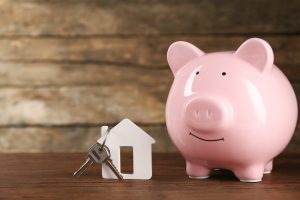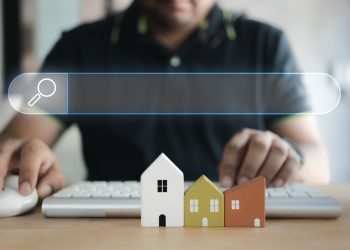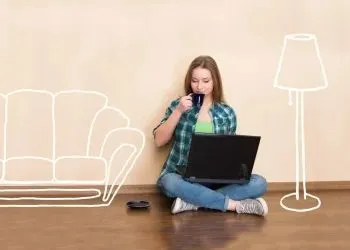Feeling overwhelmed about starting your journey to homeownership? Property solicitor, Rachael Bewick, offers 10 tips to equip you for the adventure ahead
 Buying your first property can be exciting and stressful in equal measure. For most of us, it will be the single biggest purchase we ever make. The largest amount of money we have ever accumulated will disappear from our bank account in the blink of an eye.
Buying your first property can be exciting and stressful in equal measure. For most of us, it will be the single biggest purchase we ever make. The largest amount of money we have ever accumulated will disappear from our bank account in the blink of an eye.
Unfortunately, schools don’t teach much about the process and for those embarking on buying a property for the first time, feeling clueless is pretty much part of the process.
I often receive calls from first time buyers telling me they don’t know where to start. Common questions are: What should I ask when I view a property? Do I need a survey? How long will it take to buy the property?
If this sounds like you then I can assure you you’re not alone; even someone who has bought a property before can find the process daunting!
So, to help you start navigating through this confusing process, here are 10 things you should know:
-
Don’t be shy: Ask questions
Whether it is during or after the viewing, make sure you ask the seller some questions. This can prevent surprises further down the line. Even before you think of putting in an offer, ask:
- Why are they selling?
- Are they buying somewhere else? If so, has their offer been accepted on their purchase property?
- What are the seller’s timeframes? You don’t want to find out later you will be waiting months to move in.
- If it is a leasehold property, what is the current service charge and ground rent and are any major works planned?
- Another for leasehold properties: how long is the lease? This is my number one question for leasehold properties. A short lease can be very restrictive although issues can be overcome.
-
Get your mortgage offer sorted ASAP
Your estate agent will want you to have a mortgage offer in principle at the point of making an offer on the property, so don’t lose any time.
A mortgage offer in principle is confirmation from the mortgage company that they are willing to lend to you without having to issue the mortgage offer at that stage. Your estate agent will also want to see proof of any other money you will need for your purchase (this is the purchase price plus all other costs).
-
Arrange a survey of the property as soon as your offer is accepted
Some people decide not to have a survey, but that’s like buying a second hand car without knowing what’s under the bonnet or how many miles are on the clock.
-
Appoint a conveyancer
A conveyancer is a legal professional (solicitor) who handles the legal work undertaken during the property purchase process. Always go with a specialist in this area, i.e. someone who does this work day in and day out. You can find a specialist property solicitor via the Law Society.
-
When comparing conveyancing quotes, be sure to compare ‘like for like’
You’ll find that some conveyancing quotes will include extra fees for dealing with a mortgage, a leasehold property or filing your Stamp Duty Land Tax return.
Make sure you get a full breakdown and if you don’t understand, ask.
Thanks to new rules that came into effect in December 2018, all conveyancers are now required to publish price, service and quality information on their websites, as part of an industry wide push to empower consumers and foster innovation and competition across the legal services market.
-
Be realistic about the time it takes before the property is yours
Recent research from EMEA Matterport found that it took six months and 24 days to purchase a property on average.
However, some will take much less time while others may take longer.
The length of time for a purchase to be complete can be down to a range of things, such as how many people are in your purchase chain or if the survey throws up issues that need to be dealt with.
-
Check your Help to Buy ISA
 If you have a Help to Buy ISA and want to claim the bonus to use towards your purchase make sure you contact your bank to check how long it will take for your Help to Buy ISA account to be closed.
If you have a Help to Buy ISA and want to claim the bonus to use towards your purchase make sure you contact your bank to check how long it will take for your Help to Buy ISA account to be closed.
Some banks will close your account on the day you request it to be closed; others can take a few days. You don’t want this to cause any delays just before exchange of contracts.
Don’t close your account until you solicitor has confirmed you have exchanged contracts. If you do and your purchase falls through, you will need to liaise with you bank about depositing the funds back into your ISA and you may lose out on any bonus payments.
-
Be upfront with your solicitor about the source of money
Tell your solicitor at the start if any of the monies for your purchase are not coming from you, such as a gift from a family member or a friend.
This is because they will need to carry out due diligence checks as part of anti-money laundering regulations. This way your solicitor can deal with any requirements from the get go.
-
Check if you have to pay Stamp Duty
Stamp Duty Land Tax, to give it its full name, is payable if you buy a residential property over £125,000 in England and Northern Ireland.
However, if you are buying your first home you don’t have pay this tax if the purchase price is £500,000 or less – providing you fulfil the requirements to claim First Time Buyer’s Relief.
The requirements can be found here. If your property is over £500,000 you can check here to see what you have to pay.
-
Know the difference between exchange of contacts and completion
This is by far one of the most common questions I get asked. Exchange of contracts is the point at which you enter into a contract to buy the property from the seller and the seller enters into a contract to sell the property to you.
Your purchase is not legally binding until you have exchanged contracts, so before this stage either party can pull out of the transaction. Completion is the day when the full purchase price has to be paid to the seller and you are provided with the keys to the property – at this stage you are then the legal owner of the property.
Rachael Bewick is a residential property solicitor at London law firm Osbornes Law














